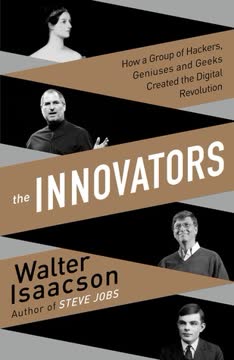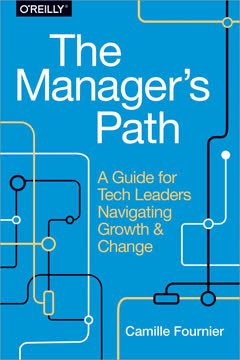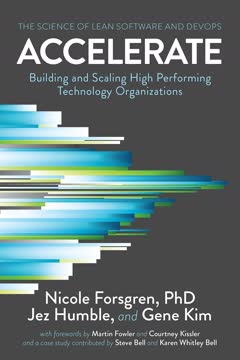Key Takeaways
1. Open source software has evolved from community-driven to individual-centric projects
There is no "open source community," really, anymore than there is an "urban community."
From collective to individual. Open source software has transformed from large, community-driven projects to smaller, individual-centric endeavors. This shift reflects broader changes in online content creation and distribution. The early days of open source were characterized by massive collaborative efforts like Linux, but today's landscape is dominated by smaller projects maintained by one or a few dedicated individuals.
Diverse project types. Open source projects now span a spectrum:
- Federations: Large, community-driven projects (e.g., Linux, Node.js)
- Clubs: Niche projects with overlapping contributors and users
- Toys: Personal projects with minimal user base
- Stadiums: Widely-used projects maintained by few individuals
This diversity challenges traditional notions of open source as inherently collaborative, highlighting the need for new models of understanding and supporting these projects.
2. GitHub revolutionized open source development by standardizing workflows
GitHub had a meteoric impact on open source. It crashed through the roof of the Church of Free and Open Source Software and landed on the pews, crushing everything beneath.
Standardization and accessibility. GitHub transformed open source development by providing a centralized platform with standardized tools and workflows. This dramatically lowered the barrier to entry for new contributors and made it easier for projects to manage contributions. Key features include:
- Unified interface for code hosting, issue tracking, and pull requests
- Social features like user profiles and project starring
- Built-in version control with Git
Cultural shift. GitHub's impact went beyond technical improvements, fundamentally changing open source culture:
- Emphasis on individual developers over projects
- Increased visibility for maintainers and contributors
- Normalization of open source participation for commercial developers
This standardization has made open source more accessible but also introduced new challenges in managing increased participation.
3. Maintenance, not creation, is the primary challenge for open source projects
Software is frequently characterized as "zero marginal cost," meaning that it can be distributed for nearly nothing, regardless of how many additional people consume it.
Hidden costs of maintenance. While creating and distributing open source software may have low marginal costs, maintaining it over time incurs significant hidden expenses:
- Responding to user support requests and bug reports
- Updating documentation and managing dependencies
- Reviewing and merging contributions
- Ensuring compatibility with evolving technologies
Burnout risk. The burden of maintenance often falls on a small number of individuals, leading to burnout and project abandonment. This challenge is exacerbated by:
- Expectations of continuous support from users
- Difficulty in monetizing maintenance work
- Lack of recognition for ongoing maintenance efforts
Addressing these maintenance challenges is crucial for the long-term sustainability of open source projects.
4. The economics of open source are shifting from collaborative to solo endeavors
If creators, rather than communities, are poised to become the epicenters of our online social systems, we need a much better understanding of how they work.
Centralized communities. The open source landscape is increasingly dominated by projects centered around individual maintainers rather than large collaborative communities. This shift mirrors trends in other online content creation spaces, where individual creators build audiences around their work.
New economic models. This change necessitates new approaches to valuing and supporting open source work:
- Focus on maintainer reputation and social capital
- Exploration of funding models that support individual creators
- Rethinking contribution dynamics to manage maintainer workload
The challenge lies in balancing the benefits of open collaboration with the need to support and sustain individual maintainers.
5. Managing over-participation is crucial for project sustainability
A tragedy of the commons occurs not from consumers over-appropriating the content itself, but from consumers over-appropriating a creator's attention.
Attention as a limited resource. As open source projects gain popularity, maintainers often struggle with an overwhelming influx of user requests, bug reports, and contributions. This "over-participation" can lead to burnout and project abandonment if not managed effectively.
Strategies for managing demand:
- Automation of routine tasks (e.g., continuous integration, bots for issue triage)
- Clear contribution guidelines and templates
- Selective engagement with high-value contributions
- Distributing support tasks to the user community
Balancing openness with sustainable practices is key to long-term project health and maintainer well-being.
6. Reputation and social capital are becoming central to open source economics
Historically, producers charge customers to access content. But today, producers can make content free to read, while instead charging for "write access": meaning, the ability to appropriate attention from producers.
Reputation as currency. In the new open source economy, a maintainer's reputation and social capital are becoming increasingly valuable. This shift parallels trends in other online content creation spaces, where creators build personal brands and monetize their audience relationships.
Implications:
- Increased focus on personal branding for open source developers
- Potential for monetization through sponsorships and patronage
- Tension between project-based and individual-based funding models
This emphasis on reputation challenges traditional notions of open source as purely altruistic, introducing new dynamics of value creation and capture.
7. Funding models for open source are evolving to support individual maintainers
Can we imagine telling Tfue, who rose to fame by livestreaming himself playing Fortnite Battle Royale on Twitch, that the most he could hope for was to get hired by ESPN?
Beyond corporate funding. Traditional funding models for open source, often relying on corporate sponsorship or foundation support, are being supplemented by new approaches that directly support individual maintainers:
- Crowdfunding and patronage platforms (e.g., Patreon, GitHub Sponsors)
- Paid support and consulting services
- Dual licensing models
Challenges and opportunities:
- Balancing open source ethos with individual monetization
- Developing sustainable funding streams for less visible but critical projects
- Navigating potential conflicts between personal and project interests
These evolving funding models offer new possibilities for sustaining open source work but also introduce complex ethical and practical considerations.
8. The future of open source lies in balancing public access with controlled participation
When production is a one-way mirror, creators are shielded from distraction, building things in public view but without the expectation that they engage with unhelpful contributors.
Rethinking participation. The future of open source may involve a shift towards models that maintain public access to code while limiting direct participation. This approach aims to address the challenges of over-participation while preserving the benefits of open source.
Potential strategies:
- Tiered access models for contributions
- Increased use of automation and AI for issue triage and support
- Development of new platform features to manage user interactions
The challenge lies in finding the right balance between openness and sustainability, ensuring that open source continues to thrive while supporting the needs of maintainers and users alike.
Last updated:
FAQ
What is Working in Public: The Making and Maintenance of Open Source Software by Nadia Eghbal about?
- Focus on open source maintenance: The book examines how open source software is created and, more importantly, maintained, highlighting the often invisible labor of maintainers.
- Platform and community evolution: It explores how platforms like GitHub have transformed open source from collaborative communities to projects centered around individual maintainers.
- Economic and social dynamics: Eghbal discusses the paradox of open source’s immense value versus the lack of financial and social support for its creators.
- Broader digital implications: The book draws parallels between open source and other online creator economies, offering insights into digital collaboration and content production.
Why should I read Working in Public by Nadia Eghbal?
- Unseen labor revealed: The book uncovers the hidden work and challenges behind the open source software that powers much of the internet.
- Understanding sustainability: It provides a nuanced look at why many open source projects struggle with sustainability and maintainer burnout.
- Practical frameworks: Eghbal offers frameworks for measuring software value, managing contributor attention, and understanding funding models.
- Broader relevance: The lessons extend to anyone interested in digital culture, platform dynamics, and the future of collaborative production.
What are the key takeaways from Working in Public by Nadia Eghbal?
- Shift to solo maintainers: Most open source projects are now maintained by a few individuals, challenging the traditional model of large, collaborative communities.
- Maintainer attention is scarce: The real bottleneck in open source is not code, but the limited attention and energy of maintainers.
- Platforms shape behavior: Tools like GitHub have centralized development, making contribution easier but also increasing noise and maintainer workload.
- Maintenance is undervalued: Ongoing support, infrastructure, and user management are costly and often go unrecognized or unrewarded.
What are the main concepts and frameworks introduced in Working in Public by Nadia Eghbal?
- Software as public infrastructure: Open source code is likened to public infrastructure, with value derived from its use and dependencies.
- Dual economic goods: The book distinguishes between software as a public good (consumption) and as a commons (production), where maintainer attention is rivalrous.
- Maintainer attention as currency: Attention is the limiting resource in open source, and managing it is crucial for project health.
- Reputation and funding: The reputation of maintainers often drives funding and support more than the code itself.
How does Nadia Eghbal define the roles of maintainers, contributors, and users in open source projects?
- Maintainers: Stewards responsible for the project’s direction, governance, and ongoing health, often handling triage, code review, and decision-making.
- Contributors: Individuals who make code or non-code contributions, ranging from one-time participants to regular, active members.
- Users: Primarily consumers of the code who may offer feedback or bug reports but usually remain outside the core contributor community.
- Role distinctions matter: Understanding these roles helps clarify project dynamics and the distribution of labor and responsibility.
What are the four types of open source project models described in Working in Public by Nadia Eghbal?
- Federations: Decentralized projects with high user and contributor growth, formal governance, and working groups (e.g., Linux, Rust).
- Clubs: Projects with high contributor but low user growth, featuring tight-knit, dedicated communities (e.g., Clojure).
- Toys: Small, personal, or experimental projects with minimal users and contributors, often maintained by a single person.
- Stadiums: Projects with high user but low contributor growth, maintained by a few individuals with many casual contributors (e.g., Babel, webpack).
How has GitHub changed the culture and workflow of open source development according to Nadia Eghbal?
- Standardization and convenience: GitHub unified tools and workflows, making it easier to discover, share, and contribute to projects.
- Shift in values: Modern developers prioritize ease of use and visibility over ideological concerns about code freedom.
- Platform dependency: Developers increasingly rely on GitHub’s infrastructure and social features, creating new challenges for maintainers.
- Increased participation and noise: Lower barriers to entry have led to more casual contributors, often overwhelming maintainers with low-quality or infrequent contributions.
What are the hidden costs of maintaining open source software according to Working in Public by Nadia Eghbal?
- User support burden: Maintainers spend significant time addressing help requests, bug reports, and feature demands.
- Technical debt and refactoring: Ongoing maintenance includes cleaning up code, testing, and managing infrastructure, which is often unrewarding.
- Dependency management: Projects rely on many external packages, requiring constant updates and vigilance for security.
- Infrastructure and moderation: Hosting, security, and community moderation add real costs, even if code distribution is free.
How does Working in Public by Nadia Eghbal explain the decline of large-scale collaborative open source communities?
- Context collapse: Platforms like GitHub merge distinct communities, eroding collective identity and making social norms harder to enforce.
- Overwhelming participation: The influx of casual contributors increases noise and workload for maintainers.
- Centralized governance: Many projects now revolve around a few maintainers rather than decentralized collectives.
- Complex governance challenges: Defining membership, enforcing conduct, and balancing authority have become more difficult.
What strategies and advice does Nadia Eghbal offer for open source maintainers managing contributor communities?
- Balance reactive and proactive work: Maintainers must juggle user interactions with coding and project vision.
- Recognize contributor diversity: Tailoring support to casual versus active contributors improves engagement and sustainability.
- Leverage automation and community support: Tools like bots and user-to-user support can reduce workload and filter noise.
- Set boundaries: Limiting participation or closing issues can help maintainers preserve their attention and well-being.
How does Working in Public by Nadia Eghbal address funding models and economic dynamics for open source developers?
- Institutional vs. individual funding: Companies fund for code quality and influence, while individuals sponsor maintainers for reputation and ongoing work.
- Attention as currency: Money can make maintainer attention excludable, through paid support or sponsorships.
- Funding maintainers over casual contributors: The book argues for prioritizing support for those who bear the bulk of maintenance work.
- Project vs. individual funding: Funding individuals aligns with open source’s distributed nature, while project funding requires more formal governance.
What are the best quotes from Working in Public by Nadia Eghbal and what do they mean?
- “Nobody can keep open house in a great city.” — Jane Jacobs: Highlights the difficulty of managing open, public resources without clear boundaries and governance.
- “Information wants to be free. Information also wants to be expensive.” — Stewart Brand: Captures the tension between free distribution and the need for creator compensation in digital goods.
- “Open source code is a form of public infrastructure that requires maintenance.” — Nadia Eghbal: Frames open source as essential infrastructure, emphasizing the need for ongoing care and funding.
- “The production of open source software functions more like a commons—where attention is the rivalrous resource.” — Nadia Eghbal: Stresses that while code is freely consumed, maintainer attention is limited and must be managed carefully.
Review Summary
Working in Public explores the dynamics of open-source software development, focusing on maintainer challenges, community structures, and economic models. Eghbal's insights on project management, contributor relationships, and funding mechanisms are praised for their depth and relevance. While some readers found the book disorganized or lacking novel information for experienced developers, many appreciated its analysis of open-source culture and its implications for online communities. The book's beautiful physical design and accessibility to non-technical readers were also commended.
Similar Books










Download PDF
Download EPUB
.epub digital book format is ideal for reading ebooks on phones, tablets, and e-readers.




